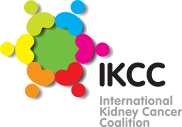Kidney cancer is on the rise globally and presents an increasing burden on health systems, governments, and most of all to individual patients and their families. Although therapies have improved for both early-stage and late-stage RCC patients, little is known about the variances in patient experience from country to country, including unmet needs and best practices among countries in patient education, quality of life, and involvement in clinical trials and registries.
The overriding goal of the 2020 IKCC Global Patient Survey is to gather information that will assist IKCC as an international coalition, our Affiliate Organisations, and patient organisations worldwide to benchmark and better understand variations in the patient experience, through the examination of the following issues:
Patient Knowledge, Expectations of Treatment, and Self-reported “Patient Activation”
To what degree have patients been made aware of and have an understanding of their diagnosis, including stage, subtype, treatment options, and expected side effects?
- Of those who did not have an understanding of their disease, who are they and how can they be reached?
- What are the patient’s primary sources of information? What is missing?
- What are the patient’s expectations for treatment? For side effects?
- To what degree is the patient involved in making treatment decisions (Shared Decision Making)? Who else is involved and to what degree?
Clinical Trials/Research Awareness: To what extent are patients made aware of advancements in RCC care? (including surgical advances, immunotherapy, targeted treatments, radiation therapy, palliative care).
- Has a healthcare professional discussed any clinical trial with the patient?
- Has the patient enrolled (if No, what were the reasons/barriers; if Yes, what were the reasons)
- What are the patient’s sources of information for clinical trials?
- What are the patient’s expectations for clinical trials?
Quality of Life: How are patients being affected by treatment? What specific physical and psychological conditions and medical issues are patients living with, and how do these issues affect their day to day lives?
- Which aspects of the patient’s daily life/activities are affected?
- Have healthcare professionals been effective in providing support for QoL?
- What are the unmet needs to support patient’s goals for QoL?
- Which patients are not reaching out for help? Why?
